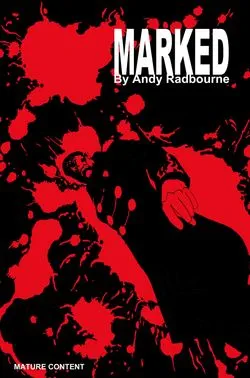⠪
Avengers Endgame - is it BAD?
Published: 17th March 2024, by Andrew Radbourne.
My historical musings on The culmination of the Infinity Stone Saga: AVENGERS ENDGAME
Greetings everyone,
Today, I'm veering off the beaten path to revisit Avengers: Endgame. Initially, I had planned to share my thoughts on this after my Snyder cut video, but as we all know, life is full of unexpected turns.
Endgame is the grand finale of an 11-year journey and over 20 films in the Marvel Cinematic Universe (MCU) and it was... decent. As a long-time Marvel enthusiast, I've cherished many of the MCU films, including the ones often deemed as subpar.
Joss Whedon, despite his current unfavourable status, created a masterpiece in his first Avengers film. I was drawn into the world of comics many years ago by the Avengers, hence, I was both anxious and excited about the film. I feared a potential disaster but was ultimately rewarded with an incredible film filled with memorable quotes.
The Russo brothers, directors of Endgame, did fantastic work on Winter Soldier and Civil War, and delivered a home run with Infinity War. However, I found the transition from the near perfect Infinity War to Endgame rather bewildering.
For me, Infinity War was near flawless, keeping me on the edge of my seat throughout, even though I had already read the comics. Unfortunately, Endgame doesn't quite hit the same highs.
Before I delve further, be warned that spoilers lie ahead.
Most people are familiar with the story: in Infinity War, Thanos emerges victorious, eradicating half the universe. The remaining heroes locate him to retrieve the stones, but they are destroyed. Consequently, Thor lands the killing blow. Fast forward five years, Antman exits the quantum realm, and with the help of Tony Stark, they invent time travel, retrieve the infinity stones, and reinstate the vanished half of the universe, all while unaware that 2014 Thanos has followed them.
The film's length is its Achilles heel, and I found myself losing interest during the middle. The tonal shifts add to the unevenness of the movie.
The first act commences with intimate scenes between Stark and Nebula, which, unfortunately, are never revisited in the rest of the movie. The tone is sombre after the 'five years later' mark, portraying a world in mourning. The scenes of Antman walking through deserted streets, his panic when looking for his daughter, and the subsequent relief upon finding her alive are poignant.
However, the subsequent scenes featuring Captain America felt unnecessary and verbose. It seemed to serve just one purpose, though it did feature Jim Starlin, the creator of Thanos, and subtly hinted at Captain America's inability to move on.
Natasha's character arc is excellently portrayed, but Captain America's absence feels contradictory to his character. Captain Marvel's appearance, albeit brief, is a tad too snide.
When the idea of time travel is proposed, they seek Stark's assistance. Stark, leading a simple life with Pepper and their daughter, initially declines. His reluctance is understandable, but being his genius, he can't resist the allure of a new challenge. However, his overnight solution to time travel feels rushed and too convenient.
The second act ushers in a jarring tonal shift, transforming the Hulk into a source of comic relief. This was a disappointing development for me, as I had hoped for a moment of glory for the Hulk, especially after Infinity War.
The second act also sees the revival of the Avengers team. Natasha goes to find Clint, who's spiralled into a pit of despair after losing his family. His storyline, while brief, is emotionally charged and could have been explored further.
Thor, conversely, is reduced to a caricature of his former self. He's become a drunk and a recluse, weighed down by his failure in Infinity War. This could have been a poignant commentary on PTSD and survivor's guilt, but instead, it is made into a farce.
The rest of the second act feels like a whimsical caper, almost forgetting the gravity of the situation - the fate of the universe hangs in the balance.
However, the film redeems itself with a spectacular final battle. The climax is over the top, outrageous, and glorious. Tony Stark's sacrifice is heart-wrenching, and his funeral is an emotional rollercoaster.
One scene that elicited mixed reactions was the 'female hero selfie moment'. While it was empowering to some, it felt forced and interrupted the narrative flow.
In conclusion, while Avengers: Endgame has its moments of brilliance, it also has aspects that could have been better executed. The most notable disappointment, in my opinion, was the underutilization of the Hulk. Nonetheless, it was a fitting end to an 11-year journey.
Today, I'm veering off the beaten path to revisit Avengers: Endgame. Initially, I had planned to share my thoughts on this after my Snyder cut video, but as we all know, life is full of unexpected turns.
Endgame is the grand finale of an 11-year journey and over 20 films in the Marvel Cinematic Universe (MCU) and it was... decent. As a long-time Marvel enthusiast, I've cherished many of the MCU films, including the ones often deemed as subpar.
Joss Whedon, despite his current unfavourable status, created a masterpiece in his first Avengers film. I was drawn into the world of comics many years ago by the Avengers, hence, I was both anxious and excited about the film. I feared a potential disaster but was ultimately rewarded with an incredible film filled with memorable quotes.
The Russo brothers, directors of Endgame, did fantastic work on Winter Soldier and Civil War, and delivered a home run with Infinity War. However, I found the transition from the near perfect Infinity War to Endgame rather bewildering.
For me, Infinity War was near flawless, keeping me on the edge of my seat throughout, even though I had already read the comics. Unfortunately, Endgame doesn't quite hit the same highs.
Before I delve further, be warned that spoilers lie ahead.
Most people are familiar with the story: in Infinity War, Thanos emerges victorious, eradicating half the universe. The remaining heroes locate him to retrieve the stones, but they are destroyed. Consequently, Thor lands the killing blow. Fast forward five years, Antman exits the quantum realm, and with the help of Tony Stark, they invent time travel, retrieve the infinity stones, and reinstate the vanished half of the universe, all while unaware that 2014 Thanos has followed them.
The film's length is its Achilles heel, and I found myself losing interest during the middle. The tonal shifts add to the unevenness of the movie.
The first act commences with intimate scenes between Stark and Nebula, which, unfortunately, are never revisited in the rest of the movie. The tone is sombre after the 'five years later' mark, portraying a world in mourning. The scenes of Antman walking through deserted streets, his panic when looking for his daughter, and the subsequent relief upon finding her alive are poignant.
However, the subsequent scenes featuring Captain America felt unnecessary and verbose. It seemed to serve just one purpose, though it did feature Jim Starlin, the creator of Thanos, and subtly hinted at Captain America's inability to move on.
Natasha's character arc is excellently portrayed, but Captain America's absence feels contradictory to his character. Captain Marvel's appearance, albeit brief, is a tad too snide.
When the idea of time travel is proposed, they seek Stark's assistance. Stark, leading a simple life with Pepper and their daughter, initially declines. His reluctance is understandable, but being his genius, he can't resist the allure of a new challenge. However, his overnight solution to time travel feels rushed and too convenient.
The second act ushers in a jarring tonal shift, transforming the Hulk into a source of comic relief. This was a disappointing development for me, as I had hoped for a moment of glory for the Hulk, especially after Infinity War.
The second act also sees the revival of the Avengers team. Natasha goes to find Clint, who's spiralled into a pit of despair after losing his family. His storyline, while brief, is emotionally charged and could have been explored further.
Thor, conversely, is reduced to a caricature of his former self. He's become a drunk and a recluse, weighed down by his failure in Infinity War. This could have been a poignant commentary on PTSD and survivor's guilt, but instead, it is made into a farce.
The rest of the second act feels like a whimsical caper, almost forgetting the gravity of the situation - the fate of the universe hangs in the balance.
However, the film redeems itself with a spectacular final battle. The climax is over the top, outrageous, and glorious. Tony Stark's sacrifice is heart-wrenching, and his funeral is an emotional rollercoaster.
One scene that elicited mixed reactions was the 'female hero selfie moment'. While it was empowering to some, it felt forced and interrupted the narrative flow.
In conclusion, while Avengers: Endgame has its moments of brilliance, it also has aspects that could have been better executed. The most notable disappointment, in my opinion, was the underutilization of the Hulk. Nonetheless, it was a fitting end to an 11-year journey.

